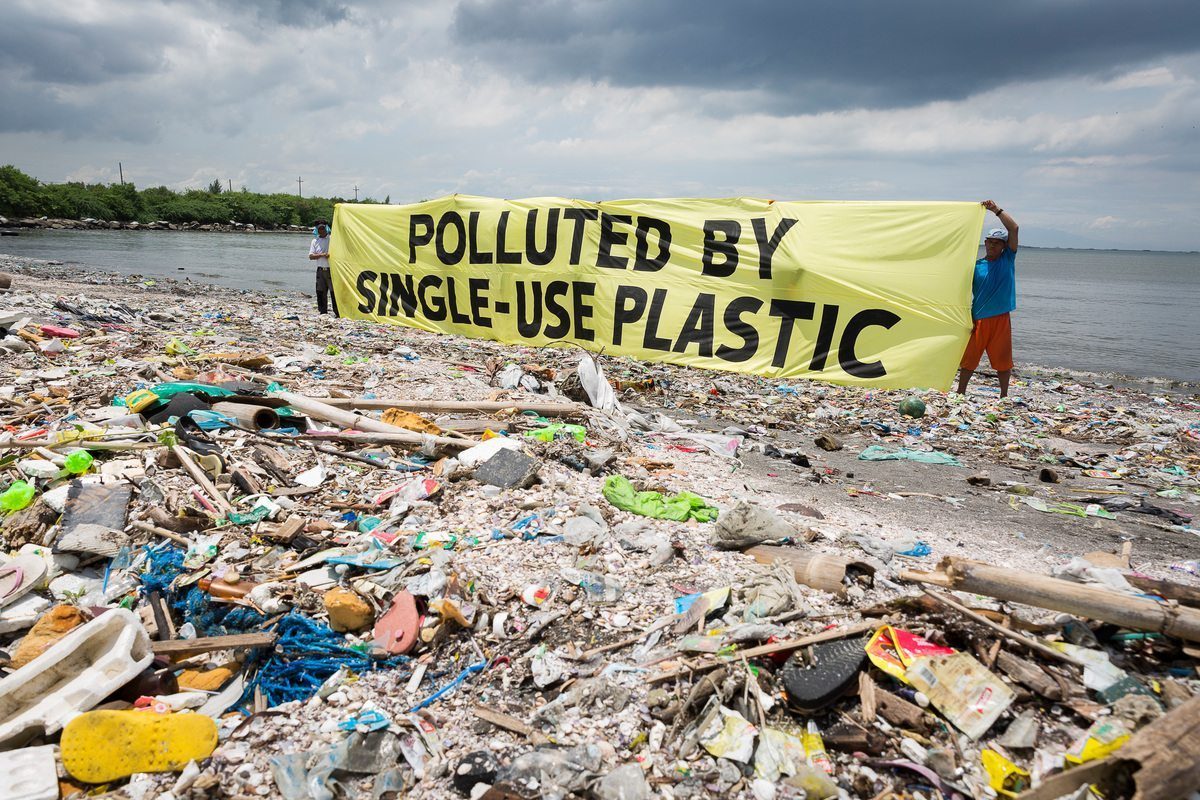The plastic pollution filling the world’s oceans exploded into popular conscience after the reveal of Blue Planet II, which horrified millions with its shots of vivid, deep blue seas polluted with floating plastic waste. What came next was a demand for seismic upheaval concerning global society’s approach to plastic, this demand penetrating minuscule and monumental behaviours alike.
People started handing in plastic food packaging while some supermarkets are now offering plastic-free fruit and vegetables in their green aisle; a myriad of petitions appeared online begging banning of all sorts of plastic products; as far as the eye could see, people were buying reusable keep-cups and water bottles for their take-out coffee and water.
Environmental awareness evolved from a minority behaviour to a majority one, the majority united in pushing for change to combat the scourge of plastic filling our oceans and killing marine life. The consumerist population was shocked into awareness of their own wasteful habits, and it demanded change.
Today we see the biggest movement towards eco-living that has occurred in human history. For the first time ever, the largest societal sub-section is the one with the greatest consumerist power. If the masses decide they don’t want plastic, businesses have no choice but to give way to their will. That’s why you won’t see plastic straws ubiquitous in bars and restaurants anymore, and why every coffee shop you go into now offers a discount when you get your coffee in a keep-cup. The way our society interacts with plastic has been truly revolutionised.
On the tail end of every mass movement, however, comes misinterpretation of it. While people in western society revolutionised the way they interact with plastic in everyday life, many individuals knew little of the reasons behind why. They knew plastic was bad – they didn’t know why. And with superficial understanding of the anti-plastic movement in conjugation with zealous advocacy of its primordiality came misinformed demonisation of any form of plastic. Social media influencer Bretman Rock faced online backlash when he posted a video in which he used a single plastic straw instead of a reusable metal one, fans and followers pointing out how detrimental that single straw was to the environment. People who agonise over straws are missing the point, and here’s why
People who agonise over straws are missing the point…
Researchers in Australia and the United States, led by Jenna Jambeck of the University of Georgia, found that China alone produced 32 times more plastic marine debris than the United States in 2010. The same report found that the five biggest culprits for plastic pollution in global oceans were China, Indonesia, the Philippines, Vietnam and Sri Lanka, accumulatively depositing almost seven million metric tonnes of plastic waste in the ocean in 2010. These top five countries were responsible for 53% of the ocean’s plastic pollution, making them liable for producing more marine plastic pollution than the other 190 countries combined. Even if the United States and UK recycled 100% of its plastic, the reduction would not make a dent in the global marine plastic debris quantity; complete radicalisation of the amount of plastic used in the other 190 countries combined would be required to rival the figures of the top five countries.
Insufficient waste disposal systems on a national level are to blame for the vast amount of plastic that finds its way to the sea from these five countries. There are few trash-collection services in Asian countries resulting in dumping of household garbage. This is in conjugation with the vast overpopulation and densely-populated urban areas (China is the world’s most populated country with 1.3 billion inhabitants, while Macau, an autonomous region in south China, is the most densely populated region in the world, official Macau government and census bureau findings show) which result in huge amounts of plastic waste being deposited in the rivers that flow through these densely populated areas. Of the ten rivers in the world that transport the most plastic waste to the ocean, eight of them are in Asia, and the top three of those are in China. The number one contributor is China’s vast Yangtze river. Measuring almost four thousand miles and flowing through five Chinese cities, the Yangtze river delivers 1.5 million tonnes of plastic waste into the ocean every year, as found by research published in Environmental Science & Technology. This is in comparison to 18 tonnes delivered to the sea by the Thames.
It’s hard to say what the take-away from all this will be, with the future of our world hanging by a thread. Can the western consumer really make a difference to the effects of global human activity? Can marine plastic debris be dramatically reduced before plastic outnumbers fish in 2050 as predicted by the Ellen MacArthur Foundation? Or is it all meaningless if there comes no change in practice by the worst-offending countries?
What does emerge from the bleak portrait of our world’s treatment of the ocean’s marine life is this: not using plastic straws, replacing disposable coffee cups with reusable ones and not using plastic carrier bags are not enough.
image source: https://www.greenpeace.org/usa/oceans/preventing-plastic-pollution/

